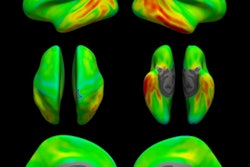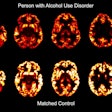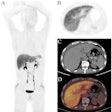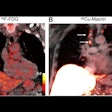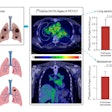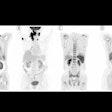Dear Molecular Imaging Insider,
PET imaging continues to play a major role in Alzheimer's disease research. PET scans of beta amyloid and tau in the brain have helped show that beta-amyloid deposits may trigger the misfolding of tau protein, which in turn is thought to be the bigger culprit in downstream tissue damage (neurofibrillary tangles).
This understanding may be motivating a gradual shift toward new therapies targeting tau in clinical trials. To that end, Swiss researchers suggest that biomarkers of Alzheimer's disease drawn from spinal fluid can help increase the number of eligible patients in these trials -- specifically, those using tau PET to assess new treatments. Read about it in this edition's Insider Exclusive.
Listed below are a few other Alzheimer's disease research stories we've covered:
- Patients who have increases in brain tau pathology are more likely over time to experience psychosis and rapid cognitive and functional decline.
- Australian and Japanese colleagues have developed a new tracer that reveals the activity of reactive astrocytes in early stages of the disease.
- Amyloid PET performed in just a few minutes appears equal to standard FDG-PET imaging for detecting glucose hypometabolism in patients, according to Stanford University researchers.
In news that could impact beta-amyloid PET imaging, the U.S. Centers for Medicare and Medicaid Services is expected to decide by April 11 whether to limit coverage for drugs like aducanumab only to people enrolled in qualifying clinical trials.
In other coverage, hybrid PET/CT and PET/MRI imaging studies continue to take advantage of simultaneous anatomical and functional information to reveal new findings in oncology applications:
- Fibroblast activation protein inhibitor PET/MRI appears to outperform standard molecular imaging for diagnosing gastric cancer, according to a Chinese group.
- A Danish team found that PET/CT with a new radiotracer looks promising for establishing the risk of disease progression and death in patients with neuroendocrine cancer.
- Carbon-11 methionine PET/CT scans can help diagnose developmental brain tumors in children and adolescents, a South Korean group reported.
Finally, while the worst of the COVID-19 pandemic appears to be over, molecular imaging kept abreast of developments as new variants of the virus began to spread. In mid-January, the Society for Nuclear Medicine and Molecular Imaging warned that the omicron variant appears to cause an unusual imaging pattern on FDG-PET/CT scans in cancer patients.
Be sure to check back regularly for more news in your Molecular Imaging Community!








